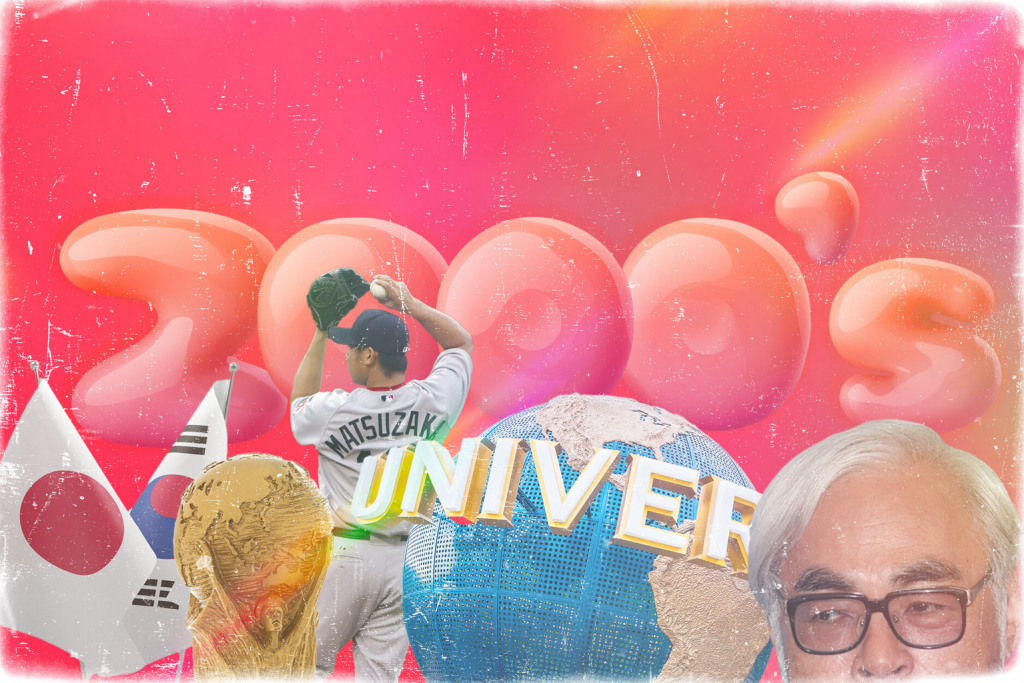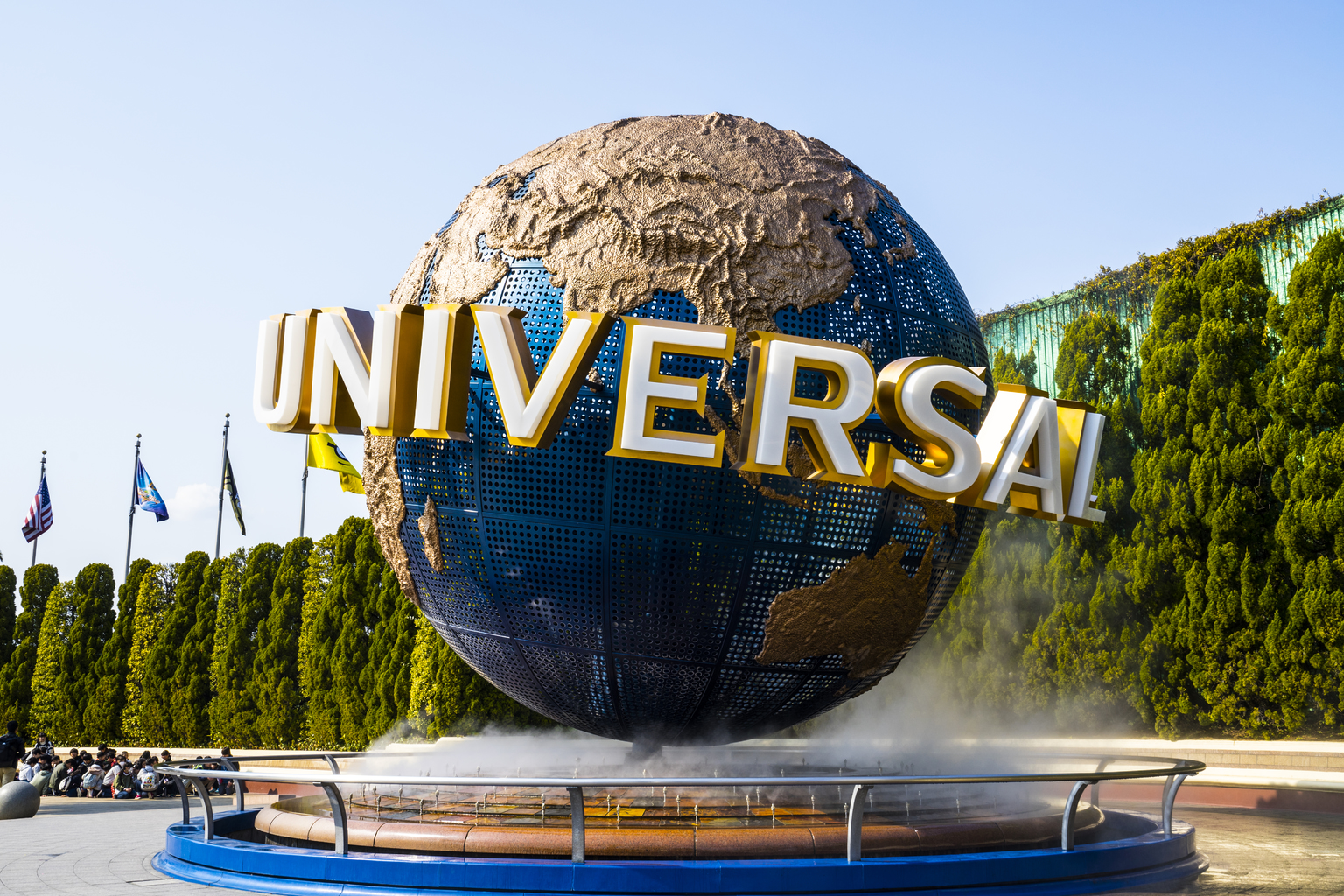Next in our lookback at the last 50 years of news is the 2000s, a decade that began with the death of Japan’s prime minister and ended with a new party at the helm, promising sweeping reforms.
Japan’s “Mr. Ordinary” Dies
On April 1, 2000 an exhausted-looking Keizo Obuchi gave a rambling response to reporters following a tough week dealing with Mount Usu’s eruption and the potential breakaway of a coalition partner. It was the last time the public saw their prime minister alive. He suffered a stroke the next day and never regained consciousness, passing away on May 14, aged 62. Inspired to become a politician after meeting Robert Kennedy, he was named PM in 1998 when Japan faced its worst recession in five decades. A self-effacing individual often labeled “Mr. Ordinary,” he described himself as “a noodle shop between two skyscrapers,” when compared with other Gunma-born prime ministers, Yasuhiro Nakasone and Takeo Fukuda. Obuchi was succeeded by Yoshiro Mori.
Universal Studios Japan & DisneySea Open
2001 was a big year for amusement parks in Japan with Universal Studios opening in Osaka in March followed by Tokyo DisneySea in Chiba six months later. The former, now most well-known for The Wizarding World of Harry Potter, debuted with attractions such as E.T. Adventure and Back to the Future: The Ride. On its 338th day, USJ welcomed its ten-millionth guest, a world record then broken by DisneySea, which reached that impressive milestone in 307 days. First announced in 1988, plans for a second Disney-themed park in Japan initially focused on a concept similar to the Disney MGM Studios in Florida, but that was eventually scrapped in favor of an idea that centered around the “seven seas.”
Japan/Korea World Cup
Two separate bids became one as Japan and Korea decided to put their animosities to one side to host the 2002 FIFA World Cup together. The first to be staged in Asia, it was a competition full of surprises beginning with Senegal’s victory over defending champions France in the opening game. The Korean Red Devils caused the biggest shock, reaching the semi-finals following controversial wins against Italy and Spain. Samurai Blue, who started with a draw against Belgium, won their group after beating Russia and Tunisia before being knocked out by Turkey in the second round. Brazil met Germany in the final in Yokohama where the Selecao triumphed thanks to two goals from player of the tournament Ronaldo.
Five Kidnap Victims Return Home In the summer of 1978 Kaoru Hasuike and Yukiko Okuda were attacked at a beach in Niigata, bundled onto a boat and injected with a sedative before being sent to North Korea. Twenty-four years later they were finally allowed to return home along with fellow abductees Yasushi and Fukie Chimura and Hitomi Soga, who disappeared with her mother, Miyoshi. In a meeting with Junichiro Koizumi, Kim Jong-il admitted that his country abducted 13 Japanese citizens (17 victims are officially recognized by the Japanese government), eight of whom had died. According to Teikyo University’s DNA tests, the cremated remains of Megumi Yokota and Kaoru Matsuki came from two unrelated people, however, an article in Nature magazine suggested those tests were inconclusive as the samples may have been contaminated.
Spirited Away and Departures Bag Oscars
A fantasy adventure film about a 10-year-old girl entering a dangerous world of monsters and otherworldly beings, Spirited Away became the second movie after Shrek to take home the Best Animated Feature award at the Oscars, though director Hayao Miyazaki didn’t turn up to receive the prize. “The reason I wasn’t there for the Academy Award was because I didn’t want to visit a country that was bombing Iraq,” he said after the ceremony in 2004. Five years later, Yojiro Takita’s Departures became the first Japanese movie to win a Best Foreign Language Film gong at the prestigious event. As well as shining a spotlight on the country’s encoffination ritual, the emotive and humorous drama also boosted tourism in Sakata, Yamagata.
Sasebo Slashing
Okubo Elementary school in Sasebo, Nagasaki was the venue for a gruesome crime in the summer of 2004 as 12-year-old student Satomi Mitarai was killed by a fellow pupil who slit her throat and slashed her arms with a box-cutter. The 11-year-old perpetrator – “Girl A” – told the police she did it because her classmate wrote bad things about her appearance online. “I wonder why I did it? If I thought and acted properly it wouldn’t have happened. I’d like to apologize,” the Yomiuri Shimbun quoted her as saying. A year earlier in the same prefecture, a 12-year-old boy murdered four-year-old Shun Tanemoto by pushing him off a multi-story building. The two crimes led to calls for the age of criminal responsibility to be lowered again in Japan.
Amagasaki Derailment
On the morning of April 25, 2005, a JR train on the Fukuchiyama Line carrying around 700 passengers derailed in Amagasaki, Hyogo killing 107 people. Among the deceased was the 23-year-old driver who’d run a red light 25 minutes before the accident triggering the automatic train stop system. He then overshot at Itami station leading to a 90-second delay. Investigators believed he was speeding to make up the time. Very strict about punctuality, JR West fined drivers who were late and often forced them to go through a harsh and demeaning re-education program called Nikkin Kyoiku (Dayshift Education) for making mistakes. Of the survivors, Aiko Okazaki spent the longest time in hospital (377 days). Now in a wheelchair, she hopes to compete in archery at the Tokyo Paralympics.
Japan Win First Two WBC Titles
With many Major-League players staying away, the credibility of the inaugural World Baseball Classic was called into question, however, it proved a success with attendances and TV viewing figures exceeding expectations. Japan, one of three countries hosting the event, defeated Cuba 10-6 in the final to win the trophy despite having lost three times in the competition. Pitcher Daisuke Matsuzaka was crowned the Most Valuable Player of the tournament. Relatively unknown outside of his home country until then, he was signed by the Boston Red Sox the following year helping them win the World Series in his first season. In 2009 he was again named MVP as Japan defended the WBC title, beating Korea 5-3 in the final.
Akihabara and Osaka Massacres
On June 8, 2008 Tomohiro Kato drove a rented truck into a crowd in the shopping quarter of Akihabara, initially killing three people and injuring two. He then got out and went on a stabbing rampage, murdering four more and wounding eight. According to the Asahi newspaper, the criminal wrote “I will kill people in Akihabara,” on his blog that morning. His last message, posted a few minutes before the attack read “The time has come.” The incident occurred exactly seven years after the Osaka School Massacre in which ex-convict and psychiatric patient Mamoru Takuma stabbed eight students to death and wounded 15 others in a knife attack at Ikeda Elementary School. Both Takuma and Kato were sentenced to death.
Landslide Victory for DPJ
Securing 168 more seats than the ruling coalition of the Liberal Democratic Party and the New Komeito Party, the Democratic Party of Japan swept to a historic victory at the 2009 General Election as Yukio Hatoyama replaced Taro Aso as prime minister. “The people are angry with politics right now,” said the incoming PM. “We felt a great sense of people wanting change for their livelihoods and fought for that in this election.” The DPJ’s triumph ended more than half a century of almost unbroken rule by the LDP. Since its establishment in 1955 it had only lost one previous general election in 1993 but even then, remained as the biggest party in the Diet and was back in power within a year.












